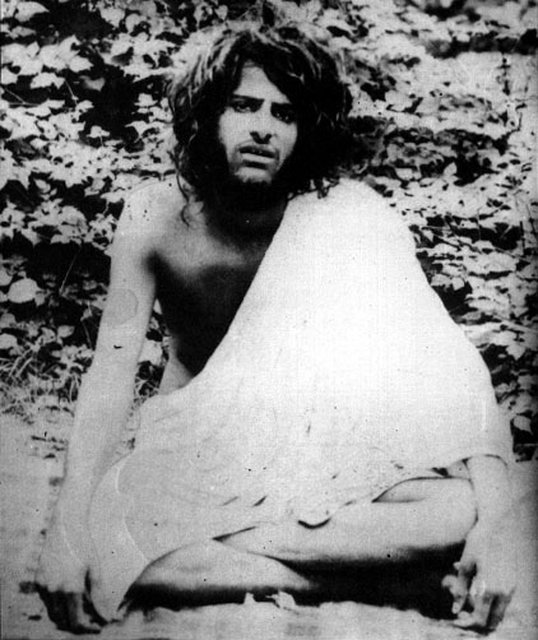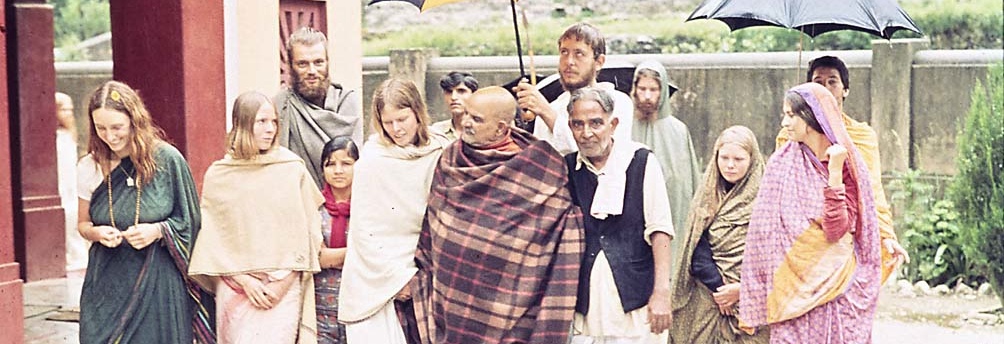Maharajji's Early Life
Maharajji was born in the village Akbarpur (Firozabad district) of Uttar Pradesh (India) in a wealthy Brahmin zameendar (landlord) family. He was born on Shukla Paksh Ashtmi in the month of Margsheersh and was named Lakshmi Narayan Sharma by his father Shri Durga Prasad Sharma. From early childhood Maharajji was detached from worldly attachments. At the age of eleven he was married to a girl from an affluent Brahmin family. Immediately after his marriage Maharajji left home and went to Gujarat. He roamed around various places in Gujarat and the entire country. After around 10-15 years (this is approximate and is as told by elders from village of Akbarpur) his father was informed by someone that he had seen a sadhu (ascetic) who was a lookalike of his son in the village of Neeb Karori (misspelt as 'Neem Karoli' at times) in the Farukkhabad district in Uttar Pradesh.
His father immediately rushed to the village of Neeb Karori to meet and get his son. There he met Maharajji and ordered him to return home. Maharajji followed his fathers instructions and returned. This was the beginning of two different types of life that Maharajji led. One that of a householder and the other that of a saint. He devoted time towards his responsibility of a householder and at the same time he continued to look after his bigger family i.e. the world at large. However, there was no difference in his life and style of living when discharging duties of a householder or that of a saint. In his family as a householder he has two sons and a daughter.

His various names

Maharajji was born as Lakshmi Narayan Sharma and this was the name given to him by his parents. When he left his home and wandered in search of truth, he came to be known as Lakshman Das. When he did tapasya at Bavania in Gujarat, he was known as Tallaiya Baba.
Later when he lived at the Indian village of Neeb Karori, he was called Neeb Karori Baba by the local villagers. There is a lot of confusion about the spelling of 'Neeb Karori'. Neeb Karori is the phonological translation of the same word from Hindi. Neeb is also sometimes written as Nib and Karori is sometimes written as Karauri. The 'ee' in Neeb is to be pronounced as in 'speed' and the 'o' in Karori is to pronounced as the 'a' in 'raw'. It is to be noted that the name Neeb Karori was taken up by Maharajji himself. He has signed with this name at some places. Neeb (In pure hindi - neev) means foundation and Karori (in pure hindi - karari) means strong. So Neeb Karori means a strong foundation.
However over the years the name Neeb Karori was transformed in various ways like Nib Karori, Neeb Karauri and it eventually took the form "Neem Karoli". This name became popular among the western devotees and has continued as such. It is true that it must have been by Maharajji's wish that the name took such a form and became so dear to his devotees. But the words 'neem karoli' means very different things. Neem is an Indian tree and Karoli is a place in India. The western devotees who have eventually learned Hindi and the Devnagari script have acknowledged that the spelling in English should indeed be Neeb Karori.